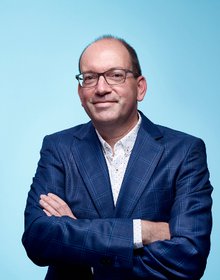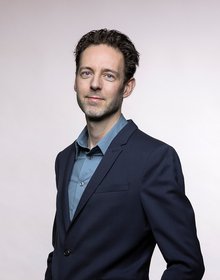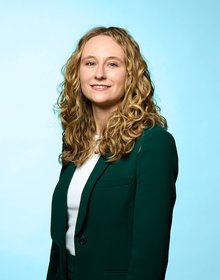Inclusion & diversity
We define inclusion and diversity as follows:
- Inclusion — Respecting the principle that people with the same talents have an equal chance to develop these talents through education and to employ and enjoy their talents through a professional career, irrespective of gender, race, religion, sexual preference and social or cultural background.
- Diversity — Having a mixed workforce that reasonably reflects the relevant parts of society with respect to among others gender, race, religion, sexual preference and social or cultural background.
Our push for diversity is motivated by different factors. From a social responsibility perspective, we realize that we are not active in some exotic line of business, but in markets lying at the heart of society. To be successful and respected in this business requires us not to place ourselves outside of society — also not through the composition of our workforce. From a more practical and operational perspective, success requires a strong team supported by a variety of talents, insights, and experiences. Excluding potential team members based on non-relevant grounds impoverishes our pool of skills and talents.
Of course, the phrase ‘the relevant parts of society’ in itself is extremely exclusive. However, the simple fact is that for almost all positions within Transtrend, we require people with an academic degree, which immediately excludes the largest part of the labor market. Exactly for this reason, we consider pushing for inclusion more effective than pushing for diversity. Diversity is a fruit of inclusion. And successful inclusion does not start in the employment phase but already much earlier.
We consider pushing for inclusion more effective than pushing for diversity. Diversity is a fruit of inclusion.
For example, the research we do requires certain quantitative skills. For our R&D team we therefore preferably hire graduates who have mastered an exact science such as mathematics or physics. However, female students are heavily underrepresented in Dutch universities in the mathematics and physics departments, while they are overrepresented in for instance healthcare studies. The root of this disparity lies already in the early phase of secondary education. Girls with high grades in mathematics are more often than boys advised to choose a profile that prepares them for higher education in healthcare instead of a beta-profile that prepares them for higher education in exact sciences. Social pressure adds to this disparity. Hence, inclusion in the end increases more when we succeed in motivating ten more girls to choose a beta-profile than when we hire one more female math graduate out of the currently small pool.
Naturally, Transtrend is way too small to make much difference in this respect. That is why we work together with other Dutch firms and organizations in our efforts to promote the exact sciences. In doing so, we have learned that not only girls are underrepresented. This is also the case for talented children with a disadvantageous social background. These children — even when they do find the courage and dedication to take on university — tend to prefer studies like business administration, motivated by the assumption that this would increase their chances of financial security. It helps when firms like Transtrend show that the career opportunities after studying mathematics are very diverse and much wider than becoming a math teacher. (And just to be clear: we hold math teachers in very high regard — we all would not have succeeded without them!)
We promote education among others by providing additional mathematics lessons and offering and supporting school projects and internships. In this process, we do take gender and the cultural and/or social background of the children and students into account. We aim to help girls in making a well-informed choice for a profile. And we prefer to spend more time supporting children who receive little or no support from home than children who do.
When it comes to employing new staff, however, we do not select based on such criteria. We regard it of the utmost importance for all of our staff to be assured that they are hired for who they are (personality, capabilities, etc.), not for what they are (physical characteristics, etc.). Apart from gender and birth date, we also do not administer the ‘whats’ of our staff. Storing such personal and sensitive information is prohibited by local privacy laws anyway, which we fully support.
At the same time, we recognize that who we are is partly determined by what we are. Respecting each other’s privacy should not result in making this subject a taboo within the firm. Some elements of what we are can be almost impossible to hide, such as gender, race, or stature. Other characteristics, on the other hand, can be disguised, such as accent and hair color. And we could also keep silent about our background, religion, or sexual preference. But by doing so, we hide part of who we are, which does not make anybody feel happy.
Inclusion and diversity have no meaning when we feel we cannot be open about who we are and what we are. At Transtrend, we strive for an environment where all of us feel safe to be ourselves. With pride and at the same time with a good amount of self-mockery. Whereas intolerance is founded on the delusion that we are superior to those who are different, tolerance essentially requires us to open up to the idea that we ourselves are the amusing weirdo.

Whereas intolerance is founded on the delusion that we are superior to those who are different, tolerance essentially requires us to open up to the idea that we ourselves are the amusing weirdo.
All this describes a culture. And yes, a typical Dutch culture. Which fits, because Transtrend is a Dutch firm. Our internal working language is Dutch, which could be considered exclusive too. Fact is, any valuable culture is preserved by a certain level of exclusivity. For instance, an important part of Transtrend’s culture is that we work in teams where there is no room for internal competition. Another important element is that we do not want to make money at all costs. Transtrend wishes to provide its clients a fair and valuable service and build long-term relationships. In its trading, Transtrend aims to contribute to well-functioning, well-organized, and reliable markets. We consider this a great responsibility, given the importance of well-functioning markets for our society. This culture, ultimately, is determined and preserved by people who share these ambitions. People who do not fit this culture will therefore not be added to the team.
But this very same culture hopefully attracts people with a diversity of other skills and talents, not restricted by gender, race, religion, sexual preference, and social or cultural background. In fulfilling our inclusion and diversity goals, we will sometimes have to defy both justified and unjustified prejudices about the industry we operate in. We can only succeed by setting the right example.
Get in touch with us

Honig

Tolenaar

Stokebrand